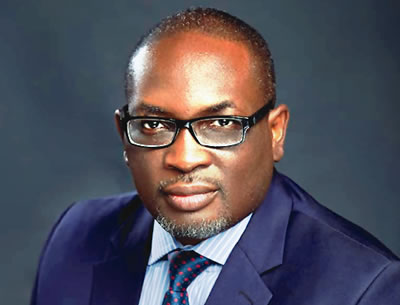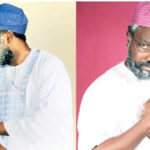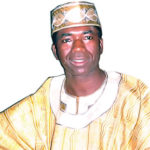Former Oyo State Attorney-General and Commissioner of Justice, Mr Seun Abimbola, speaks with IMOLEAYO OYEDEYI on some of the latest constitutional amendments being carried out by the National Assembly among other issues.
In the latest constitution amendment, the National Assembly split the office of the Minister of Justice from that of the Attorney-General of the Federation. The NASS said the move was to prevent the obvious politicisation of the two critical offices. What is your take on this, sir?
For me, I do not believe in cosmetic adjustment that may not impact the political will to do the right thing. While it has been argued for quite a long time that the two offices should be split for avoidance of conflict of issues, I doubt if the splitting of the two offices without upholding the rule of law by the political office holders both at the state level and national level will cure the malady. And you will still have to come back to this discussion in another two to three years when the amendment has been implemented. So, having held the office at the state level and understanding the challenges the NASS is trying to avoid, my view is that they can split the offices, but every holder of each of the two offices must understand that his responsibility is to the Constitution of the Federal Republic of Nigeria. But if you split the office and the holders of the split offices still don’t understand this fact, we will really see no tangible changes.
But what would you have advised the NASS to do as regards the office in view of the way it has been politicised much to the detriment of Nigerian democracy?
You see, in this country, we like to go with a cosmetic approach to significant problems. We are talking about problems that have to do with the institutional and structural setting of the Nigerian state, and we are trying to use pancakes which don’t cure the major issues. Okay, if we are saying we want to split the office, what are the constitutional duties and role of the Minister for Justice? To advise the government on what? This is because the Attorney General is the enforcer of the law and he should have the authority to do so at every level, even if it is a government agency that is at fault. But the same constitution is saying that before you can embark on any court hearing over an asset of a government, especially where the government is a party, you must first seek a leave from the Attorney General. How do you contradict yourself like that? The Attorney General is supposed to back the law. Take for instance, somebody took you to court as a government, and the court judgement went against you. But instead of you abiding by the judgement, you have to first go to the Attorney General of the same government to obtain a leave. But now, you say you split the office, yet you have not removed that part of obtaining leave. So what you have given with the right hand, you have collected with the left hand. So, that’s why I am saying that we have critical structural issues that are more monumental than the cosmetic approach we are taking on the constitution, because mere separating offices does not have any impact when the powers resident in the office are still being applied or executed in ways that may not be in the true interest of our constitution. That’s what I am talking about. So, I really don’t have any issue with the split of the offices, but as long as other critical structural issues remain unresolved, it will still be business as usual.
But what are these structural issues affecting the setup of the Nigerian state?
You see, there is still this over-protection of the government in our constitution. And this has also dovetailed even into institutions. And so, sometimes, you find out that you will make a complaint against a government agency to the law enforcement agency and they cannot take immediate action, whereas if it is against a private citizen, they will rush out and engage in all sorts of high-handedness. But when it is against a government agency or personality, they will act otherwise.
Secondly, the same NASS is trying to confer immunity on itself and on other cadres of public officers. And you are saying you are splitting the office. So if everybody who is working for the government is immune from prosecution and being accountable, so who then is not immune? Only private citizens? So private citizens are all commonised, while government institutions and arms are dignified with immunity? These are the structural issues that you must deal with. You can’t just throw a cosmetic approach at the citizen and expect that the structural issues will be forgotten like that. You have to look at it as a whole problem.
Many people have said that the pick and choose form of amendment to our constitution is really not helping matters. If you want to amend the constitution, why don’t you first look at the various parts of the constitution and how one part relates with the other part. If you are looking at amending something in chapter four of the constitution for instance on fundamental human rights, how does this interface with chapter two being the fundamental objectives and directives of state policies? And how can you make things work if you are going to be truly helping this country to grow? These are the structural changes that our constitution needs.
You cannot just pick one lone section or two and try to deal with that, without first considering how that section interfaces with the others. You don’t just create institutions, laws and place power on certain parts of the constitution without first considering how the sections you want to amend interface with other sections in the constitution. These are the issues we are facing and that is why we are on the sixth amendment now on the constitution that is not even 30-years-old. So, what we should be looking at is a true and full constitutional review and we should first debate every part of the constitution to make it into something that will make Nigeria an egalitarian society for us all.
There are some things we need to protect and preserve. Sanctity of life is critical. And there are too many killings going on in Nigeria. But how many people have been held accountable for these killings in the country? And yet we say we have a constitution that says nobody can take a life except on the order of a court of law. How many people have been held accountable to that standard? We just keep giving excuses for wrongdoings, even when the constitution provides obligations in chapter three for various arms of government to be able to perform their responsibilities.
But despite these, what we have been having are excuses and nobody has been held accountable. So can we say we have a constitution that nobody is obeying? The obedience to the constitution in most cases is in breach of it. And then, we all rush to the court and start trying to compel obedience to the constitution, whereas the government itself ought to be the custodian of the fulfilment of every section of the constitution. I mean the federal, state and local government should be the custodian of ensuring and guarding the sanctity of that instrument. But we are always fighting the same constitution that we should obey. Look at the way accounts are frozen, because of a piece of paper that somebody writes, either from the police or the Economic and Financial Crimes Commission (EFCC).
They will just easily write the bank and say freeze the account, whereas the law says you must obtain a court order. And yet, the practice continues in defiance of what numerous judgement of the Supreme Court have said. And then, you come now saying you are amending the constitution and splitting the office of the Attorney General from that of the Minister of Justice. The question is: what has the office done in the past to ensure the obedience of the constitution? Will its split now ensure the obedience and strict compliance with the constitution? These are critical questions to answer.
For instance, if somebody has a bad eye and you ask the person to use mascara, will the mascara repair the eye that is already bad? The truth is that it is easy to sermonise, but you will always see the reality at the end of the day. But when the office was combined, are you saying that it was incapable of enforcing the obedience to law without interference? And if that is the case, what have you now done to secure or protect the offices that you have just created to make sure they are now capable? Is it just the splitting that will suddenly make the two offices capable? Does the office after being splitted have a direct line of funding from the consolidated revenue of the government or it will still be collecting its funds through the office of a minister of the government even though it is meant to be independent? These are key issues, not just creating an office. You can’t just say because you are lawmakers, you create an office and give its power. What power? Does the office have independent funding? Can it hire or fire its own staff? Can it unilaterally set up a committee to make an enquiry into the government actions and inactions without recourse to either the governor at the state level and the president at the federal level? Can it unilaterally investigate any government functionary caught up in the web of corruption? Where are these powers reinforced? That is why I said it is more than just mere cosmetics. If we truly want that office to do all the things we truly want it to do, we must provide in the same vein, all the powers and insulate it to be able to use them well. But without doing this, we haven’t done anything yet.
But if the NASS will be doing something that will really strengthen the obedience to the rule of law in Nigeria, what should this have been?
What we need to do to all our laws is to reinforce accountability. It is not just by providing that lagbaja shall… Yes, that is what the law says, but what if the person does not? What is the consequence? Nothing. So, you reinforce accountability by having sanctions attached to every defaults of statutory responsibility, so that not everything shall go the way of EFCC investigating this and that when millions are being brought down. But there are statutory responsibilities that we should not default to doing. For instance, how many ministries or agencies of the state government have audited accounts? Has anybody been held accountable, even though we have an Auditor-General of the federation? Has it issued any query? Has there been any sanction for that omission or defaults? So our laws are there, but there has been no accountability to them. But if the split of the office will ensure proper accountability to the law, then it’s absolutely okay. But I still don’t see the capability of the office to ensure that accountability.
Still on the constitution amendments. One of the amended parts bothers on the issue of independent candidacy, which will empower an individual to be able to contest an election without passing through a primary of one of the political parties. Do you think this will really strengthen both politics and democracy in Nigeria?
Well, I expect that this will prove to be a step in the right direction. I know many people have supported party politics, which is not bad in itself. But the only challenge I see in independent candidature is how do you print ballot papers, if there are 200 independent candidates that say they want to be president? Are you going to put 200 faces on the ballot papers? Or are there some other indigenous ways that we can work through that? This is because if it is in the case of the political parties, you will only put their insignia on the ballot papers. And the parties would have been pre-registered with the Independent National Electoral Commission (INEC) before the election. But if you have independent candidature, that means at the state level you can have up to 40 people contesting to be governors. In some cases, you can even have 100. I think these are issues that will contend with the implementation of the independent candidacy and they ought to have been considered at the time of amendment, so that when the clause becomes a reality, it will be practicable and well suitable to the Nigerian system and set-up.
But do you think an independent candidate can truly win an election in Nigeria considering our multi-ethnicity and diverse political interest?
There is nothing impossible, my brother. It is because we have not tested or experienced it before. And that we are used to party politics. In other countries including the United States, they have independent candidature and put in place mechanisms that make it work. But I don’t really believe that it is something that cannot be worked towards, even with all our complex political structure and engagements. In fact, on the contrary, I believe that will dilute the over-concentration of focus on political parties to give birth to an independent candidate that has his own money to spend on his campaign and will not be subject to any external influence from godfathers and the likes. I think it will be good for our nation, once practical implantation can be worked on.
YOU SHOULD NOT MISS THESE HEADLINES FROM NIGERIAN TRIBUNE
We Have Not Had Water Supply In Months ― Abeokuta Residents
In spite of the huge investment in the water sector by the government and international organisations, water scarcity has grown to become a perennial nightmare for residents of Abeokuta, the Ogun State capital. This report x-rays the lives and experiences of residents in getting clean, potable and affordable water amidst the surge of COVID-19 cases in the state…Gowon tasks FG Gowon tasks FG
Selfies, video calls and Chinese documentaries: The things you’ll meet onboard Lagos-Ibadan train
The Lagos-Ibadan railway was inaugurated recently for a full paid operation by the Nigerian Railway Corporation after about a year of free test-run. Our reporter joined the train to and fro Lagos from Ibadan and tells his experience in this report…Gowon tasks FG Gowon tasks FG
WATCH TOP VIDEOS FROM NIGERIAN TRIBUNE TV
- Let’s Talk About SELF-AWARENESS
- Is Your Confidence Mistaken for Pride? Let’s talk about it
- Is Etiquette About Perfection…Or Just Not Being Rude?
- Top Psychologist Reveal 3 Signs You’re Struggling With Imposter Syndrome
- Do You Pick Up Work-Related Calls at Midnight or Never? Let’s Talk About Boundaries






